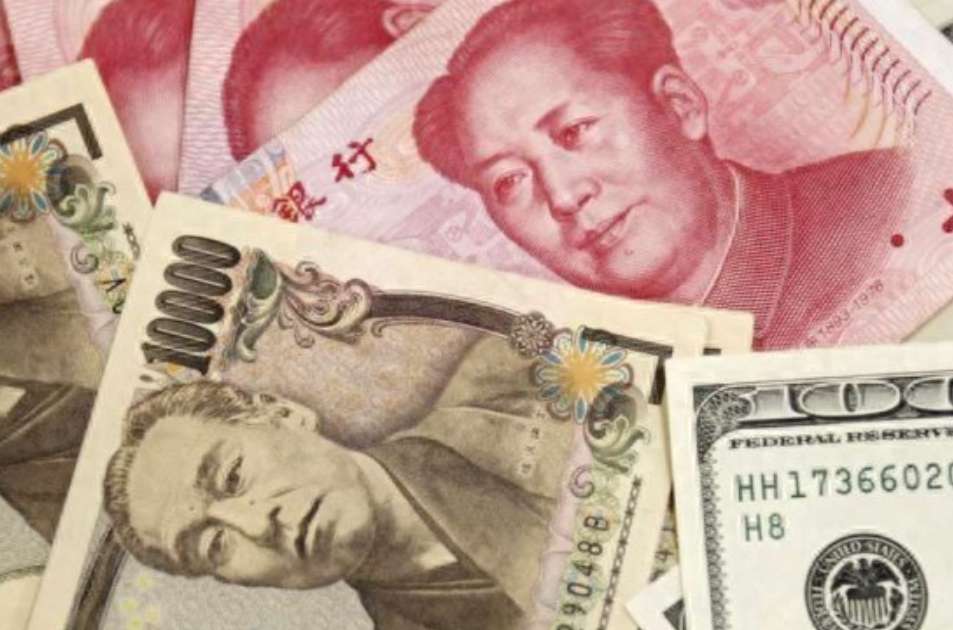Markets Expect BOJ to Hike Rates
Advertisements
The Japanese yen has shown remarkable resilience lately, with a rising trend against the US dollar that has been ongoing for four consecutive weeks. This consistent upward movement is a rarity for a currency that has faced persistent depreciation in recent years. Recent data released by the Japanese government underscored the growing likelihood that the Bank of Japan will raise interest rates once again within this year. The financial market’s flight to safety has also driven a surge in global capital seeking refuge in the yen and gold, while the dollar, often seen as another safe-haven currency, faced significant sell-off pressure. This has primarily been attributed to the dollar reaching high levels and uncertainties surrounding tariffs implemented by the US President, leading to profit-taking behaviors among investors.
After a considerable decline over the weekend, the yen rebounded sharply on Monday amidst heightened risk aversion. This was spurred by the yen’s strength against the dollar following the President's threats over tariffs. The situation was compounded when the President announced the postponement of tariffs on Canada, causing the dollar to weaken considerably and allowing the yen to further gain strength. Data released on Wednesday revealed Japan's wages had surged to the highest growth rate seen in nearly three decades, catalyzing a fast acceleration in the yen’s appreciation. By Thursday, comments from a hawkish Bank of Japan official, who suggested that borrowing costs might at least double to 1% by the end of March 2026, further buoyed the yen against all currencies.

Analysts in the forex market have largely pointed out that the hawkish pivots in the Bank of Japan’s recent rate hike actions and anticipated future policy directions contrast sharply with easing trends observed in other major global central banks, including the Fed, the European Central Bank, and the Bank of England. This positioning of Japan's monetary policy presents further upward potential for the yen in the year ahead, which could drastically narrow the yield gap between Japanese bonds and those from other major nations.
On Friday, the yen continued its upward trajectory against the dollar, with commonly utilized metrics in forex trading showing the dollar/yen ratio cooling to 150.96—the lowest level against the dollar since December 10. This downward shift indicates continued appreciation for the yen. However, by 12:15 PM Tokyo time, the rate slightly pulled back to 151.53. For the week, the yen’s rise against the dollar exceeded 2%, marking the largest increase since late November of the previous year.
"The hawkish comments from the Bank of Japan officials regarding domestic policy rates have ignited market enthusiasm for buying the yen," said Jerry Minier, co-head of G10 FX trading at Barclays in London. "We believe this is being driven more by the yen than the dollar as client interest in purchasing yen against other currencies has significantly climbed." The yen's strength can be further attributed to investors reducing their bullish dollar positions. The decline in US Treasury yields and the President's decision to delay imposing tariffs on Canada and Mexico have caused the dollar to relinquish gains made earlier in the week.
Traders, however, anticipate a degree of volatility ahead, given the cautious sentiment surrounding the anticipated meeting between Japan's Prime Minister and the US President on Friday. The market is alert to any language pertaining to tariffs or potential weaknesses in the yen. Additionally, attention is focused on the upcoming US non-farm payroll report which could also sway market actions.
Japan's economic data this week has surprised many, being unexpectedly robust and prompting speculation that the Bank of Japan might raise rates more rapidly and significantly than traders had anticipated. Aside from salary figures for December, household spending rose five times more than economists had expected, achieving the largest increase since August 2022.
Even with the dollar/yen benchmark dipping below the 150 level, some strategists caution that the yen's path forward for further appreciation may be limited. There is a growing appetite among Japanese retail investors for offshore equities, along with Japan's negative real interest rates expected to continue exerting pressure on the yen exchange rate.
While there are risks of further downward shifts against the dollar in the near term, Barclays strategists Shinichiro Kadota and Lhamsuren Sharavdemberel wrote in a report, "Unless there is a notable risk-off sentiment, we do not foresee a sustained and significant depreciation of the dollar against the yen, as Japan’s capital outflow trends continue to place pressure on the yen." Despite this caution, traders within the financial markets remain committed to increasing their bets on a further interest rate hike from the Bank of Japan. Overnight index swaps pricing indicates that the probability of a rate hike occurring before July has surged to 80%, while chances of a hike before September stand at a staggering 100%. Predictions also indicate more than two rate hikes might happen this year, a sentiment viewed as positive for the yen.
These anticipations are backed by statements from the Bank of Japan’s most hawkish member, Naoki Tamura, and former Bank Governor Haruhiko Kuroda. Tamura hinted on Thursday at additional rate hikes being likely, while Kuroda asserted that Japan has officially "exited" deflation, making ongoing normalization of monetary policy an expected move. On Tuesday, former Bank of Japan board member Eiji Hayakawa, in an interview, also expressed that the consensus within financial markets regarding a cap for BoJ rate hikes at 1% is "misguided."
Leave A Reply